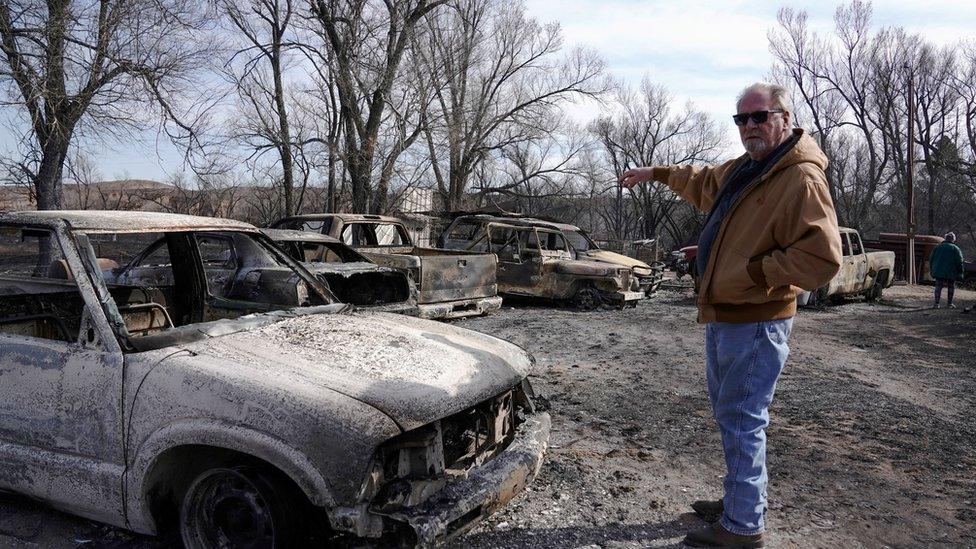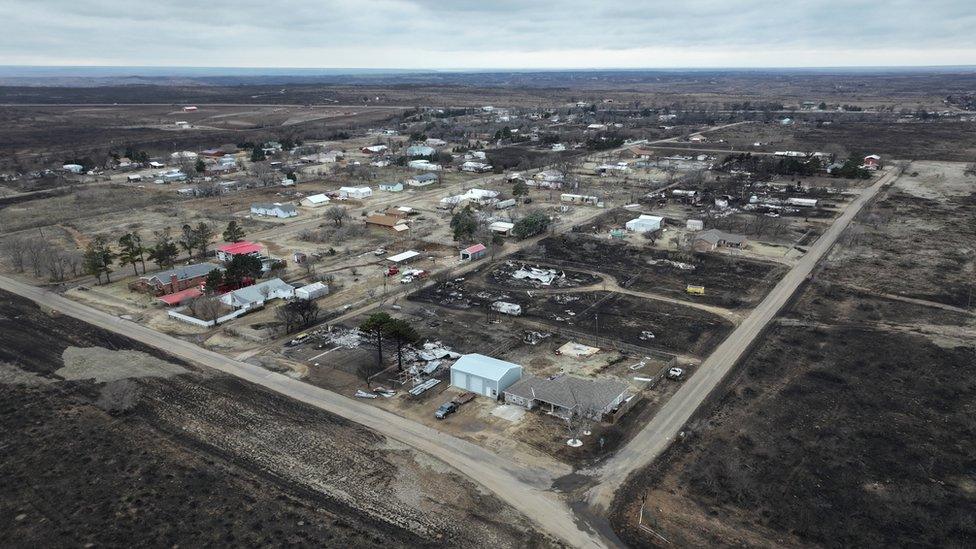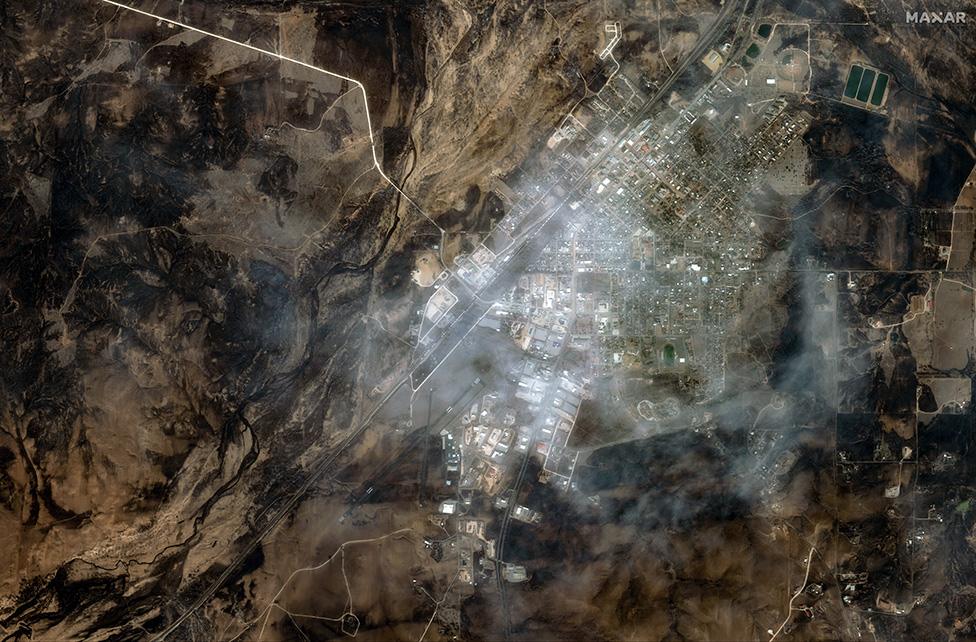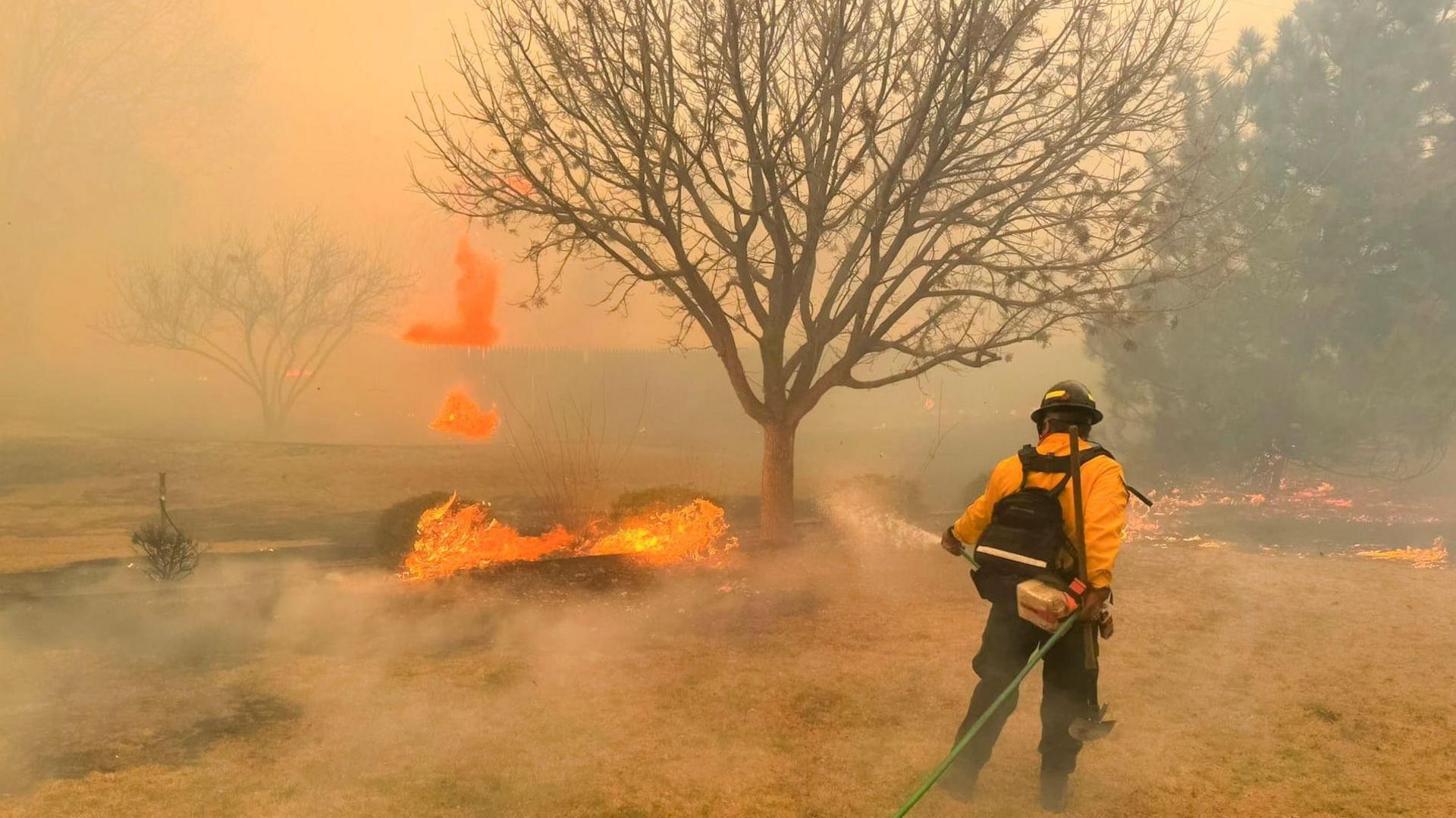Texas wildfire: Officials warn the state's biggest ever blaze could worsen over weekend
- Published

Richard Murray surveys the charred land after historic Texas wildfires swept through his town
Officials in Texas have warned the state's biggest ever fire could be fuelled further over the weekend with high winds in the forecast.
Two people and thousands of cattle have been killed as the blaze continues to rage out of control.
The Smokehouse Creek Fire, which spans over 1.1 million acres, has devastated cattle ranches, destroyed homes and left a blackened landscape in its wake.
As of Friday afternoon, the fire is only 15% contained.
Governor Greg Abbott has urged people to stay vigilant and not to "let down their guard".
"Everybody needs to understand that we face enormous potential fire dangers as we head into this weekend," he said at a press conference on Friday.
Fire weather watches have been issued in Oklahoma and the Texas Panhandle from Saturday through to midnight on Sunday as firefighters rush to contain the conflagration.
The bulk of the Texas fires - including the massive Smokehouse Creek Fire - are in the Texas Panhandle, the northern region of the state that is home to vast cattle ranches.
The land is not densely populated but millions of cows, calves, steers and bulls are raised in the area.
Governor Abbott said initial damage assessments show 400 to 500 structures that have been destroyed by the blaze.
"When you look at the damages that have occurred here, it's just gone, completely gone, nothing left but ashes on the ground," Mr Abbott said.
Thousands of animals are believed to have died, the Texas agriculture commissioner, Sid Miller, said on Thursday.
"Just my prediction, but it will be 10,000 that will have died or we'll have to euthanise," he said.
Watch: Fire engine drives through raging Texas wildfire
"It's sad. A lot of those cattle are still alive but the hooves are burned off, the teats on their udders are burned off. It's just a sad, sad situation."
Texas is the nation's largest cattle producer, and over 85% of the state's herd is in the Panhandle.
Cattle ranchers in the area were scrambling on Thursday to save both themselves and their livestock as the fire scorched the grasslands around them.
"It's hard to watch," Jeff Chisum, a Texas rancher with 600 cows, told the New York Times.
His wife, Leigh Chisum, described the devastation on Facebook, writing that she had "driven by baby calves standing alone in the black, desolate pastures with dead cows scattered along the roads".

A picture of Stinnett, Texas, in the aftermath of Smokehouse Creek Fire

Aerial view of Canadian, Texas, one of the scorched towns in Texas' Panhandle region
According to the US Department of Agriculture, Texas is home to 12 million cattle.
Texas officials said the losses will be devastating to individual producers as grasslands for feeding and farm buildings are destroyed. Governor Abbott said nearby counties and states have donated hay to affected areas, but they continue to face a shortage.
However, the overall impact, including prices at the grocery store, is likely to be unnoticeable, David Anderson, an extension economist at Texas A&M, told the BBC.
"We don't have any good numbers yet on what the losses are simply because the fires are still burning - but in terms of the entire herd and industry in the US, it's going to be relatively small," he said.
Hundreds of firefighters and first responders are deployed to the affected areas, including cities like Amarillo and Fritch, said Seth Christensen, a spokesman for Texas Division of Emergency Management.
The Red Cross is currently operating two disaster centres for wildfire victims.
In Hutchinson County, one of the hardest-hit areas, 83-year-old Joyce Blankenship died in her home as wildfire engulfed her town.
The other victim was a female truck driver, Cindy Owen. The 44-year-old was driving home from Oklahoma to Amarillo when the fire surrounded her truck, according to The Texas Tribune.
She died in hospital a day later.
In Oklahoma, the US state just north of Texas, over 30,000 acres have burned and at least 13 homes have been destroyed, according to the Oklahoma Department of Emergency Management.
With files from Natalie Sherman in New York

Related topics
- Published29 February 2024
